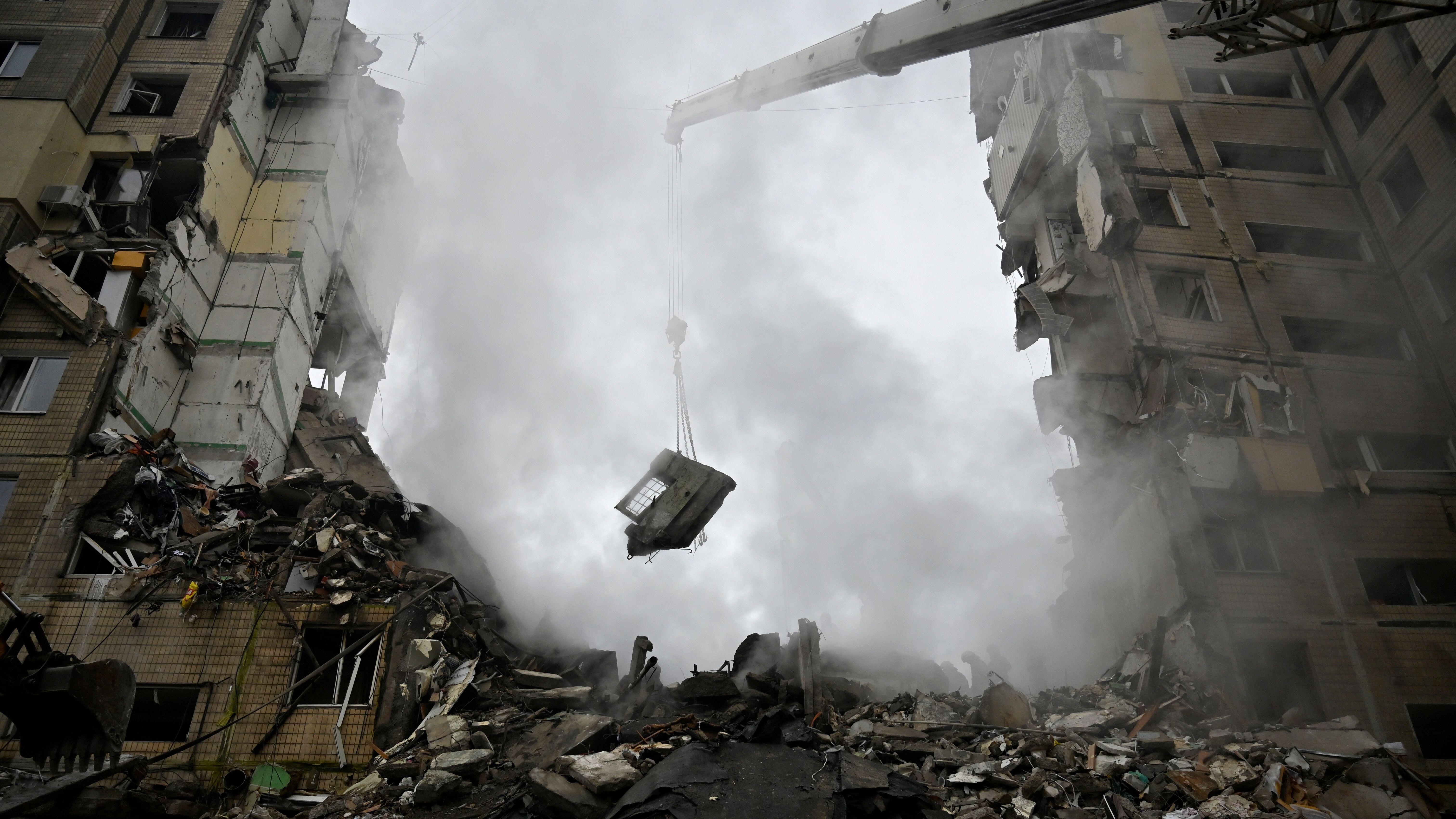
Dysfunction of Russia's missiles becoming more profound, MOD intelligence suggests

Evidence from the Ukraine war suggests that the dysfunction of Russia's long-range strike capability has become more profound, according to Ministry of Defence (MOD) intelligence.
The MOD's latest defence intelligence update on the situation in Ukraine, says Russia's long-range strike capability "highly likely struggles to dynamically identify targets, and to access rapid and accurate battle damage assessment".
The intelligence delivered an update on the recent missile strikes being used against Ukrainian infrastructure.
"On 14 January 2023, Russia resumed long-range missile strikes against Ukrainian infrastructure, the first in approximately 15 days, launching tens of missiles," the update said.
According to the report, Russia continues to primarily target the Ukrainian electricity grid.
"As with the previous eight waves of strikes since 11 October 2022, Russia primarily targeted the Ukrainian electricity grid."
The UK intelligence added it is "highly likely" that a Russian AS-4 Kitchen large anti-ship missile, launched from a Tu-22M3 Backfire medium bomber, struck a block of flats in Dnipro city which resulted in the death of at least 40 people.
"Russia falsely implied a Ukrainian air defence missile was responsible," the intelligence report continued.
"Kitchen is notoriously inaccurate when used against ground targets as its radar guidance system is poor at differentiating targets in urban areas.
"While some missiles such as Kitchen are unsuitable for precision strike, evidence from the Ukraine war suggests that dysfunction of Russia's long-range strike capability is more profound."
Following Prime Minister Rishi Sunak's announcement that the UK will provide British Army Challenger 2 tanks to Ukraine, Defence Secretary Ben Wallace has announced the "most significant package of combat power to date to accelerate Ukrainian success".
The UK committed £2.3bn in military aid to Ukraine in 2022.









